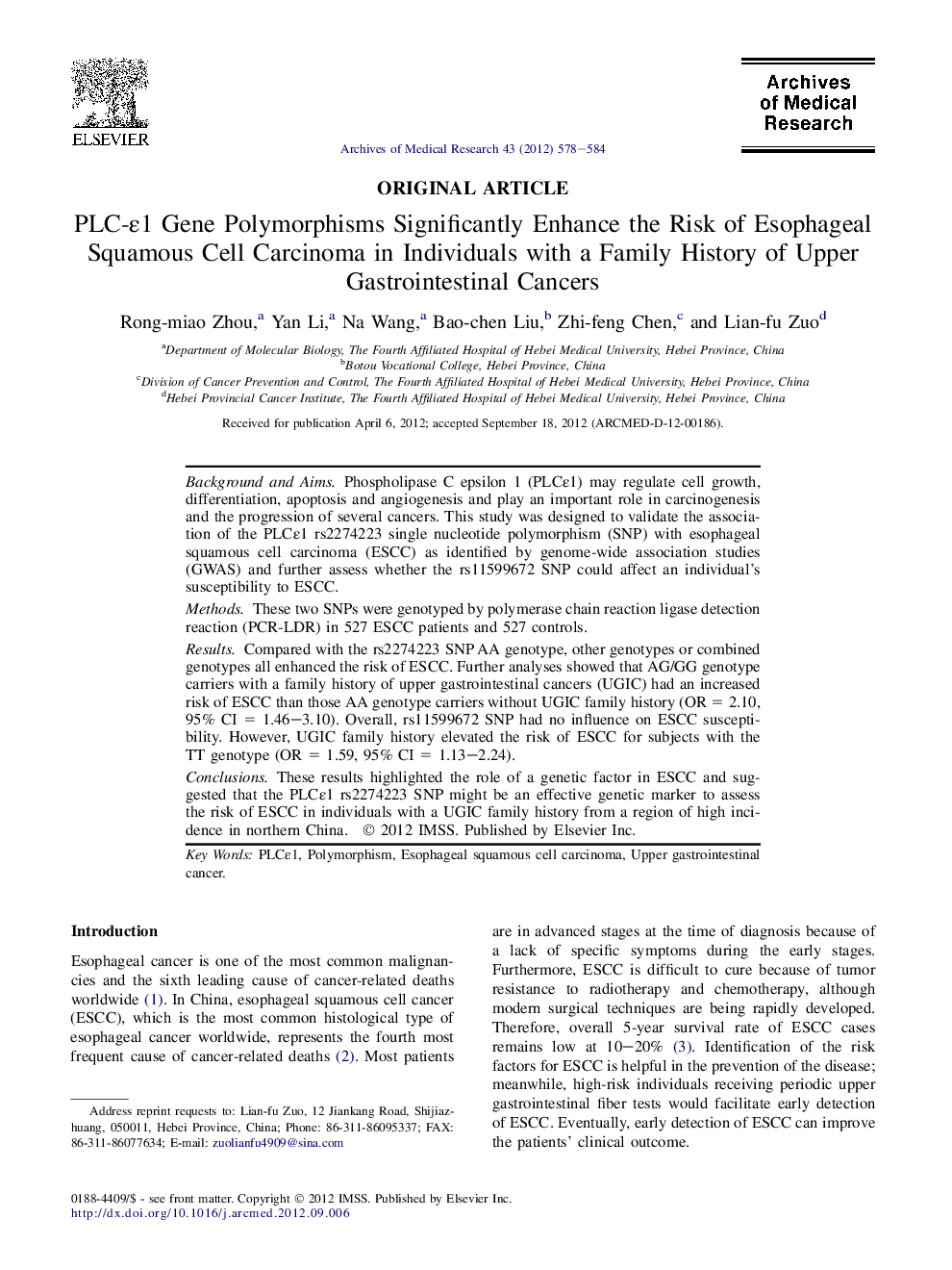| Article ID | Journal | Published Year | Pages | File Type |
|---|---|---|---|---|
| 3446721 | Archives of Medical Research | 2012 | 7 Pages |
Background and AimsPhospholipase C epsilon 1 (PLCε1) may regulate cell growth, differentiation, apoptosis and angiogenesis and play an important role in carcinogenesis and the progression of several cancers. This study was designed to validate the association of the PLCε1 rs2274223 single nucleotide polymorphism (SNP) with esophageal squamous cell carcinoma (ESCC) as identified by genome-wide association studies (GWAS) and further assess whether the rs11599672 SNP could affect an individual's susceptibility to ESCC.MethodsThese two SNPs were genotyped by polymerase chain reaction ligase detection reaction (PCR-LDR) in 527 ESCC patients and 527 controls.ResultsCompared with the rs2274223 SNP AA genotype, other genotypes or combined genotypes all enhanced the risk of ESCC. Further analyses showed that AG/GG genotype carriers with a family history of upper gastrointestinal cancers (UGIC) had an increased risk of ESCC than those AA genotype carriers without UGIC family history (OR = 2.10, 95% CI = 1.46–3.10). Overall, rs11599672 SNP had no influence on ESCC susceptibility. However, UGIC family history elevated the risk of ESCC for subjects with the TT genotype (OR = 1.59, 95% CI = 1.13–2.24).ConclusionsThese results highlighted the role of a genetic factor in ESCC and suggested that the PLCε1 rs2274223 SNP might be an effective genetic marker to assess the risk of ESCC in individuals with a UGIC family history from a region of high incidence in northern China.
